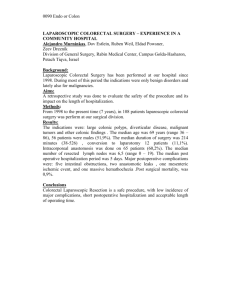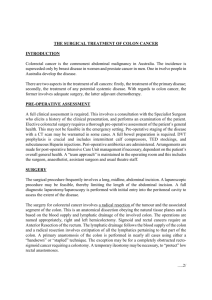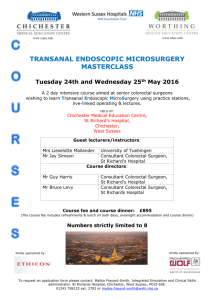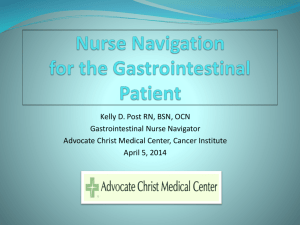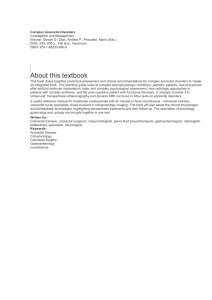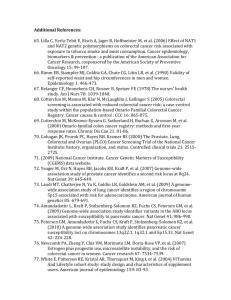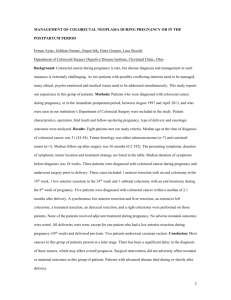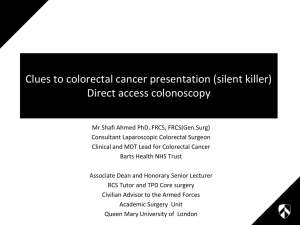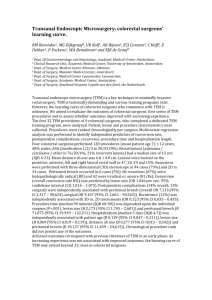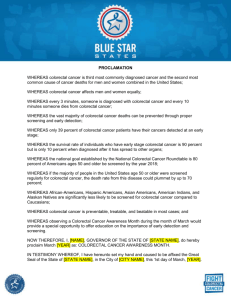gp_erp_presentation - Brighton & Hove NHS Clinical
advertisement
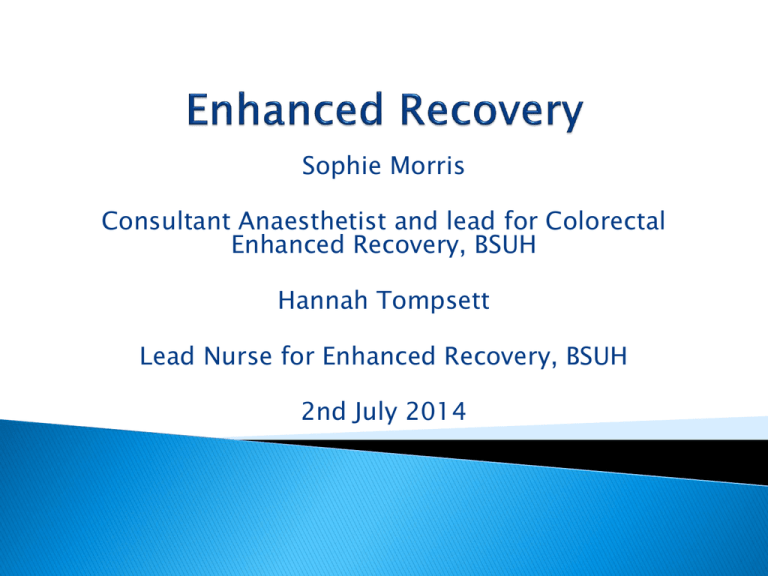
Sophie Morris Consultant Anaesthetist and lead for Colorectal Enhanced Recovery, BSUH Hannah Tompsett Lead Nurse for Enhanced Recovery, BSUH 2nd July 2014 ‘Enhanced recovery is a new, evidence-based approach that helps people recover more quickly after having major surgery.’ Developed in Denmark in 1990s Prof Henrik Kehlet UK since 2002 Originally colorectal – now expanding into all areas Structured approach to whole patient pathway Evidenced based approach Patient as active participant in preparation and recovery Reduce physical stress of operation Improve patient outcome Doing the little things well ‘Aggregation of marginal gains’ Decreased length of stay: ◦ Colorectal: LOS reduced by mean1.15 days Nicholson A. Systematic review and meta-analysis of enhanced recovery programmes in surgical patients. NIHR 2014 No increase in readmissions: ◦ Fractured NOF: Readmissions went from 6% to 2.3% Orthopaedic Rapid Improvement Programme – Delivering Quality and Value. NHS Institute for Innovation and Improvement 2009 Reduction in complications: ◦ Open colorectal: 50% reduction in complications Varadhan K et al. The enhanced recovery after surgery pathway for patients undergoing major elective open colorectal surgery: A meta-analysis of randomised controlled trials. Clinical Nutrition 29 (2010) 434-440 Patient satisfaction: ◦ Gynae cancer: ‘Patients value information resources, physio availability and follow up phone call’ Archer S. et al. Exploring the experience of an enhanced recovery programme for gynaecological cancer patients: a qualitative study. Perioperative Medicine 2014 3:2 Cost savings: ◦ DoH estimate savings to be between £35 - £52 million if implemented nationally when around 50 Trusts were doing so in 2009. (MSK, gynae, colorectal, urology) DoH. Enhanced Recovery for Elective Surgery 2009. GP involvement Pre-op clinic Optimise patient (HB, BP, Diabetes, Hydration) Health promotion (Diet, smoking, exercise) Involving and informing patient Discharge planning – pt expectation Patient information Patient diary Carbohydrate loading No bowel prep Avoid pre-meds GP involvement Pre-op clinic Optimise patient (HB, BP, Diabetes, Hydration) Health promotion (Diet, smoking, exercise) Involving and informing patient Discharge planning – pt expectation Patient information Patient diary Carbohydrate loading No bowel prep Avoid pre-meds 4 cartons evening before surgery 2 cartons morning of surgery (before 6am) Exclude patient groups: ◦ Diabetics on insulin ◦ Renal dialysis ◦ Severe cardiac failure on fluid restriction Best served cold! Ensuring the patient is fully informed Revision of patient information leaflets Introduction of DVD Introduction of patient webpage Established (CQUINs): Gynaecology Orthopaedics Colorectal New Pathways Emergency (Laparotomy & #NOF) Obstetrics Breast Urology Upper GI ‘Same standard of care 7 days a week’ Introduction of SAU ◦ Clinical Pathways ◦ Ambulatory Care ◦ Readmission Pathway Site Reconfiguration ◦ #NOF PRH ◦ Neurology services to RSCH Introduction of Nurse Practitioners ◦ ERP Nurse for Ortho ◦ Nurse Prescribers www.bsuh.nhs.uk/departments/enhancedrecovery-programme-erp/ http://nww.bsuh.nhs.uk/clinical/teams-anddepartments/trust-wide-teams/enhancedrecovery-programme-erp/ For further information please contact Email: hannah.tompsett@bsuh.nhs.uk Mobile: 07788567689
